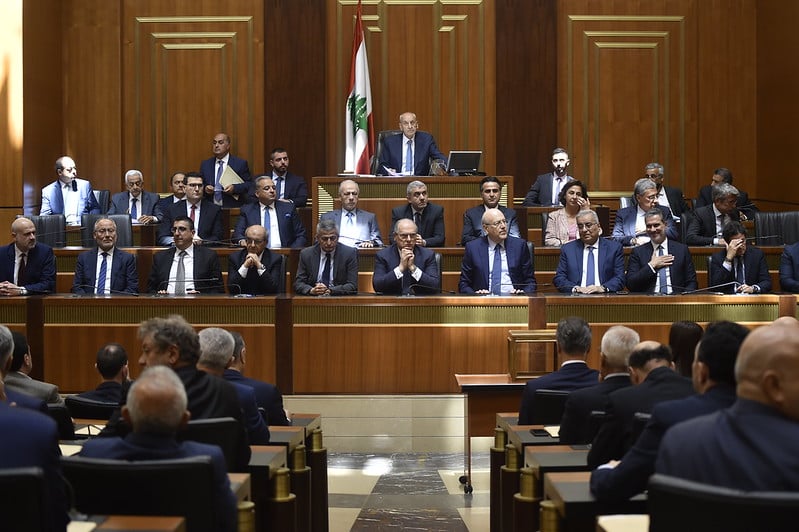In light of the slow pace of reforms Lebanon needs to make as a condition for moving to the final stage of negotiations with the International Monetary Fund, the Fund decided to send a delegation to Beirut next Monday.
The purpose of the visit, as summarized by IMF spokesperson Jerry Rice, is to “discuss implementation of the agreement at the expert level.”
Last April, Lebanon signed a preliminary agreement with the Fund, when it was decided that Lebanon would receive an amount equivalent to $3 billion over four years, but only after implementing a series of reforms and approving projects to stop the financial bleeding it is suffering and put the country’s economy on the path of recovery.
“We look forward to supporting Lebanon as strongly as we can. It is a difficult situation,” the fund’s spokesman said in a media briefing, adding: “There has been slow progress in implementing some of the necessary measures that we believe are needed to move forward with the loan program,” including addressing a financial gap of more than $70 billion in national finances. Rice noted that this delay “increases the cost to Lebanon and the Lebanese people.”
Rice’s words came a day after the statement of International Monetary Fund chief Kristalina Georgieva when asked about the development of discussions with Lebanon, during which she set conditions for their continuation.
Literally, she said, “We need to acknowledge that it is mainly about internal political constraints, unfortunately.
It’s said that we don’t fully realize the urgency of dealing with these problems, and actually, we know what to do.”
She then added: “First, we need that transparency. Please show me everything, not just the tip of the iceberg,” referring to the lack of clarity and accuracy of the numbers sent to the fund to prepare a final program with Lebanon.
“And second, we need rules that provide equal treatment to creditors. Third, we need a regulatory setup that brings creditors together. Fourth, we need political will in countries to work with creditors, to work with us, and work with other institutions, and then be decisive in equal treatment of all.”
In March of 2020, Lebanon announced its failure to pay its dues from Eurobonds, which led to the maturity of all amounts in one payment, amounting to $31 billion. So far, the country has not insisted on negotiating with international creditors on a mechanism for repaying these amounts.
Georgieva acknowledged the continuing political incompatibility on a comprehensive plan for financial and economic recovery and on Lebanon’s reluctance to approve important projects such as the Capital Control Bill, which is still stuck in the parliament, and the draft budget for the year 2022, which the Council is currently studying.
2022 budget
This draft budget has many drawbacks, and it came late after the constitutional deadline for budget discussions had passed.
The draft general budget law for the year 2022 was supposed to be decided by Parliament, no later than the end of the regular contract of the previous year, that is, on December 31, 2021, according to Article 32 of the Constitution.
To accomplish this, the government was supposed to abide by the constitutional deadlines imposed on it by Article 83 of the Constitution, which set the date for the government to send the draft budget with the start of the regular session of the House of Representatives, i.e. in mid-October.
This means that the Lebanese Ministry of Finance was currently in the process of preparing the draft budget for the year 2023 to be submitted to the government.
No vision
Basically, the draft budget lacks an economic vision that explains the government’s policy and strategic directions in the medium term. It is devoid of a detailed report known as the budget term or budget letter, which deals with the economic and financial situation in the country and the principles adopted by the government in the draft budget.
This means that it did not insist on setting expectations for the expected growth rates and inflation rates in light of what the world is suffering from, GDP, the path of public debt, and the issue of negotiation with creditors.
Consequently, the draft budget for the year 2022 lacks the general macroeconomic framework that must show the government’s vision for the coming period and its expectations regarding economic indicators.
Today, Friday, the parliament will approve the budget despite its shortcomings. The aim of this approval (despite the objections of many MPs to it) is to anticipate the arrival of the IMF delegation by sending a positive signal about Lebanon’s seriousness and willingness to implement reforms on the basis of the old adage, “Better late than never.”








